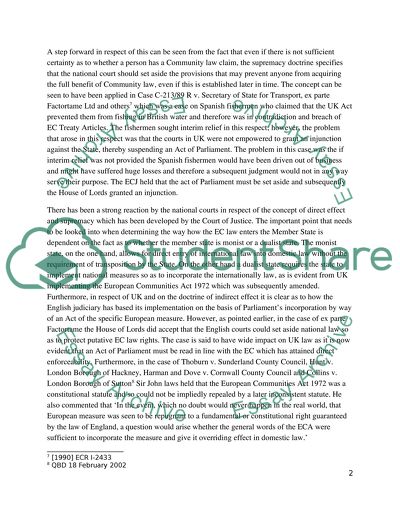Cite this document
(“Is European Union undermining the sovereignty of its individual member Essay”, n.d.)
Retrieved from https://studentshare.org/environmental-studies/1412319-is-european-union-undermining-the-sovereignty-of
Retrieved from https://studentshare.org/environmental-studies/1412319-is-european-union-undermining-the-sovereignty-of
(Is European Union Undermining the Sovereignty of Its Individual Member Essay)
https://studentshare.org/environmental-studies/1412319-is-european-union-undermining-the-sovereignty-of.
https://studentshare.org/environmental-studies/1412319-is-european-union-undermining-the-sovereignty-of.
“Is European Union Undermining the Sovereignty of Its Individual Member Essay”, n.d. https://studentshare.org/environmental-studies/1412319-is-european-union-undermining-the-sovereignty-of.


